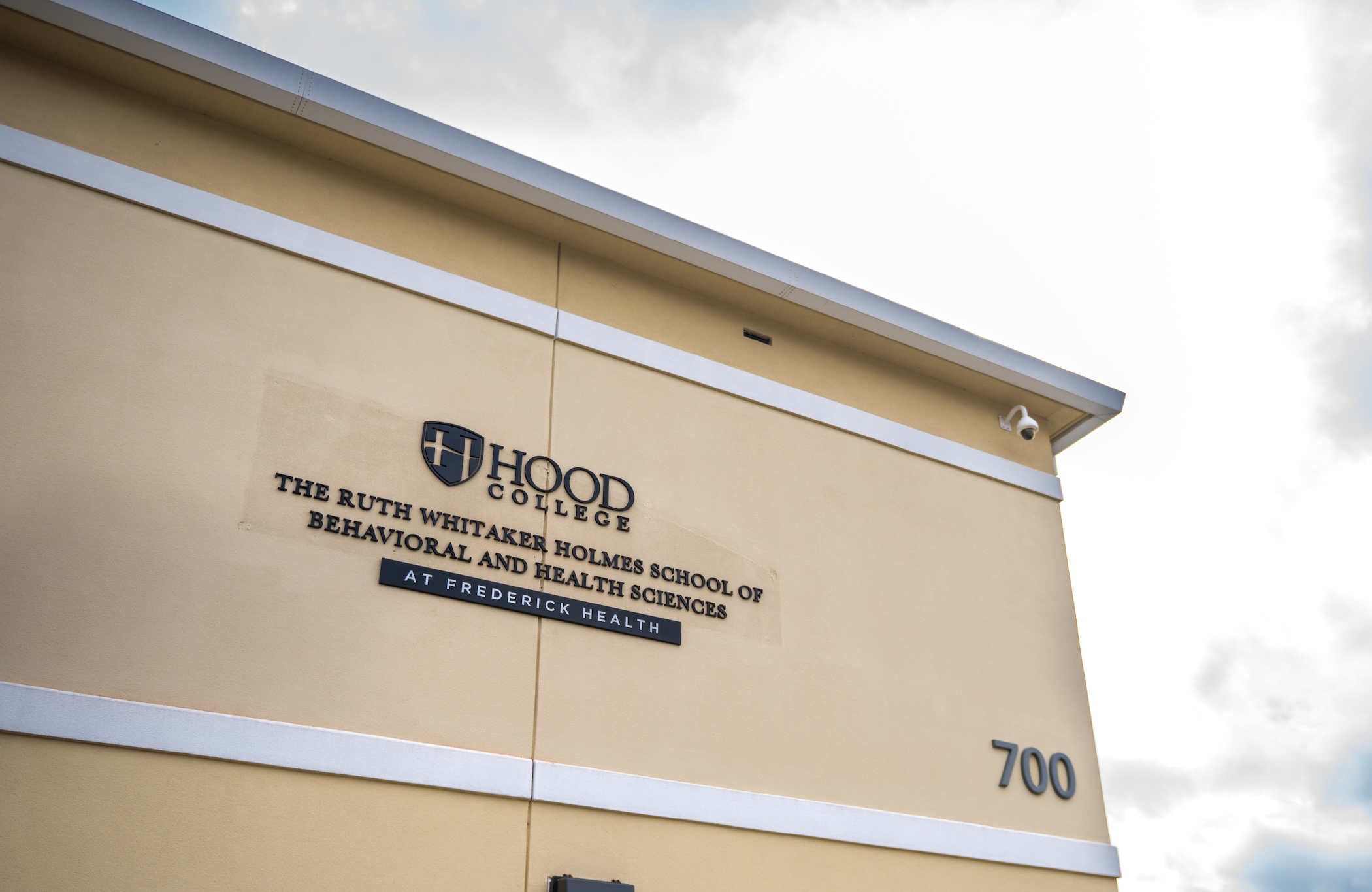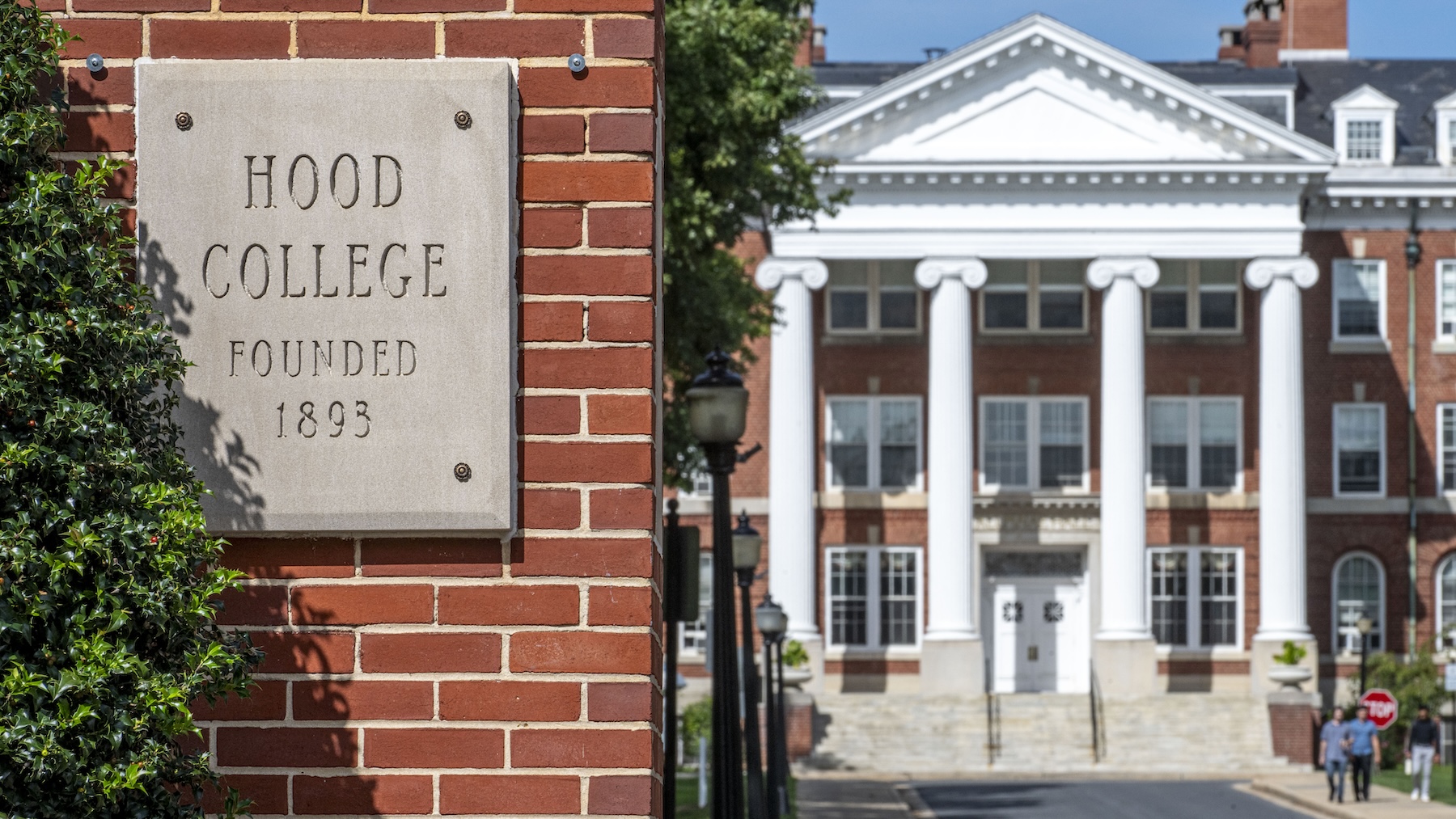Students Win Awards at Maryland Collegiate Honors Conference

The entire Hood College contingent: Back row, left to right: Keir Hudson ’20, Kyle Bulgarelli ’18, Dana Laforce ’19, Payton Mills ’19, Natalie Yeagley ’18 and Jennifer Lacko ’19.
Front row, left to right: Kelsey Decker ’18, Stephanie Kesner ’18 and Abbey McAlister ’19.
FREDERICK, Maryland—Nine Hood College students presented, and two won awards, at the annual Maryland Collegiate Honors Council conference in early March.
Natalie Yeagley, a graduating senior with a double major in art and archaeology and history received the 2018 Maryland Portz Award for Outstanding Maryland Honors Student (at a four-year school), and Stephanie Kesner, a graduating senior majoring in psychology, won an award for one of the best posters presented at the conference.
The Portz Awards are given annually in two categories: top honors student from a four-year school in Maryland and from a two-year school in Maryland. Yeagley’s award-winning paper examined the changing direction of trade and cultural influence in the Aegean Sea region in the Early Bronze Age (3100-2000 BCE). She looked at the various groups that existed on the Cycladic Islands throughout the roughly 1,000-year period and focused on their trade relationships with the island of Crete and mainland Greece. With direction from her mentor, Professor Jenni Ross, she examined several excavated sites and used the evidence to argue that the Cycladic groups maintained an economic dominance, and subsequently a cultural dominance, over Crete for a significant portion of the EBA.
“Winning the Portz Award was an incredible honor,” said Yeagley. “It is the best kind of acknowledgement of all the work I had done and an affirmation that I am on the right path to realize my future academic goals. I also realize now how lucky I have been to be surrounded by friends and professors who believe in my ability, even when I do not, and who work hard to ensure I am able to grow as a student and as an individual. I cannot overemphasize the role these people have played in my accomplishments.”
Kesner’s research focused on perceptions of police and use of force related to individuals from minority groups. With direction from her mentor, Professor Ingrid Farreras, Kesner’s study examined how participants, acting as police officers, would use force when they saw photographs and read hypothetical crime articles in which the race of the suspect and the degree of suspect resistance were manipulated. The results showed that suspect race did not affect the degree of force chosen by the participants/mock police officers, but that the degree of suspect resistance did.
“The award meant a lot to me,” she said. “It meant that all of my hard work, that started last summer, had paid off and that what I was doing meant something. My research is on a controversial topic, and by winning the award, it meant that I had handled the topic and the research appropriately. Overall, it was an extremely rewarding experience that I highly recommend to all students.”
Media Contact
Mason Cavalier
Media Manager
- Undergraduate
- Undergraduate student
- Awards
- Research




